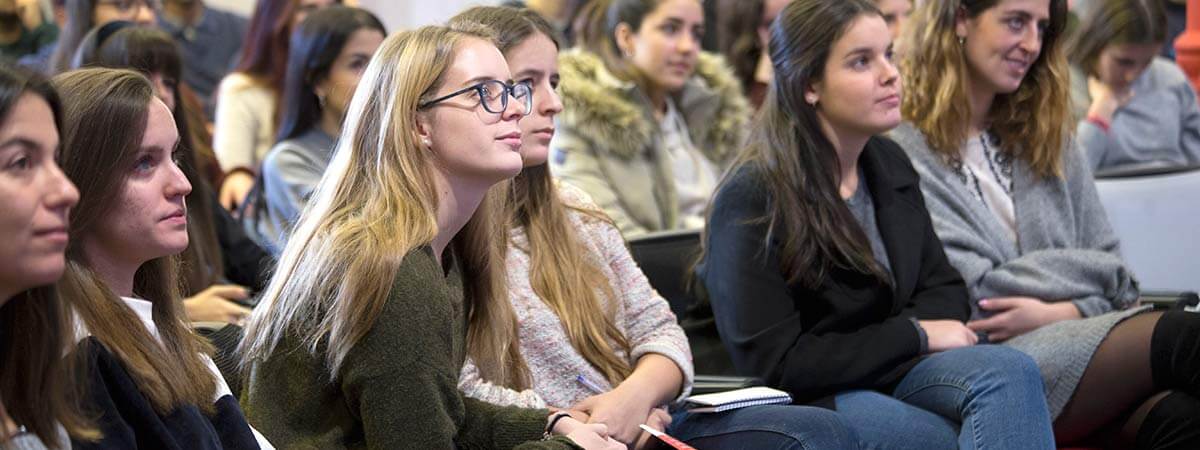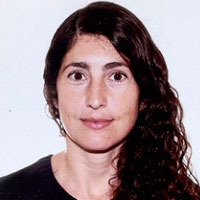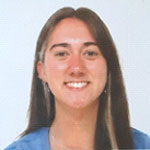Master’s Degree in Behavioral Problems in Educational Centers

Innovative program to train professionals capable of working on coexistence plans and school mediation
The program offers the professors specific guidelines for confronting the principal behavioral problems that can be found in the classroom (lack of discipline, challenging authority, attention deficit / hyperactivity disorder, etc.), becoming an expert in conflict mediation.
Currently in the different Autonomous Regions, diverse actions aimed at the improvement of school coexistence are being put into motion. With this master’s degree the student will be capable of responding to the demands established in the legislation with respect to the Center’s Coexistence Plan.
The pedagogical model of the master's degree is based on research in executive intelligence. The program offers teachers specific guidelines to deal with the main behavior problems that they may encounter in the classroom (lack of discipline, defiance of authority, attention deficit hyperactivity disorder, etc.), becoming an expert in conflict mediation.
Student profile: Master’s degree aimed at professionals of education concerned with the improvement in coexistence and the reduction of conflicts in educational centers.
Admission profile: The admission profile for the University Master's Degree in Behavior Problems in Educational Centers from the Antonio de Nebrija University is defined as follows: All applicants who meet the requirements imposed by current legislation may access the Master's Program in Behavior Problems in Educational Centers; candidates must be graduates of an associate’s degree, bachelor's degree, or master's degree in Education, Social Work or Psychology.
Graduate profile: The graduate profile is defined in the following terms: Professionals with solid training in preventing and addressing conflicts in educational centers through the use of different intervention techniques aimed at the management and resolution of conflicts at various educational levels and contexts. Graduates of the University Master's Degree in Behavior Problems in Educational Centers will have the knowledge, skills and abilities necessary to prevent and address different conflicts in educational contexts, promoting and improving school coexistence, which will have an impact on the improvement of their teaching. This is, therefore, a well-defined graduate profile, that of someone who will be able to carry out his/her work in the educational field, in a formal or non-formal setting, complementing the training received in preventing and responding to the different behavioral problems that can be found in educational contexts (lack of discipline, defiance of authority, disruptive behavior in the classroom, school violence, bullying, attention deficit disorder, behavioral disorder, etc.). In addition, through this postgraduate training, students will acquire skills to perform advisory functions and/or work on the Coexistence Plan, as well as to adapt the knowledge and skills acquired to other professional fields. Thus, they will be able to carry out their professional career in Early Childhood, Primary and/or Secondary Education centers, psychopedagogical consulting offices, school coexistence commissions, mediation teams, leisure and free time centers, among others.
Official Degree:Master’s Degree in Behavioral Problems in Educational Centers
Center responsible:School of Language and Education
Branch of knowledge: Social and Legal Sciences
Academic year it was introduced: 2020
Openings available:: 300
Total Credits:60 credits.
Minimum of 12 ECTS credits and maximum of 60 ECTS credits per enrollment and academic period.
Type of Education: Online
Academic Regulations: General student’s regulations. Credit transfer and recognition. Regulation of student participation. Common procedures for carrying out the Final Research Project
University Services: [+info]
Internal Quality Assurance System System managers Incidents, Suggestions and Complaints Job placement report and assessment of training received
Professional practices in pioneering institutions in the intervention of conduct problems
Curriculum
The student must complete 60 credits
First Semester 30 ECTS
- 6 ECTS | Principal behavioral problems in the classroom: causes and risk factors
- 6 ECTS | ADHD and Behavioral Disorders
- 6 ECTS | Social and emotional aspects of behavior
- 6 ECTS | Prevention and mediation of conflicts in the classroom
- 6 ECTS | Assertiveness and conflict resolution
Second Semester 30 ECTS
- 6 ECTS | Developing and maintaining appropriate behavior
- 6 ECTS | Cognitive techniques
- 6 ECTS | Physiological techniques
- 6 ECTS | External internships
- 6 ECTS | Final Research Project
Professors
| Profesores Professors | Porcentaje de Doctores Percentage of PhD holders |
| 63 | 73,01% |
 Nuria Camuñas Sánchez-Paulete
Vicedecana de la Facultad de Lenguas y Educación
Nuria Camuñas Sánchez-Paulete
Vicedecana de la Facultad de Lenguas y EducaciónProfesora de la Asignatura Técnicas Cognitivas Vice Dean of the Faculty of Languages and Education
Professor of the subject Cognitive Techniques
 William Timothy Schutz
Director del Departamento de Educación
Director of the Department of Education
William Timothy Schutz
Director del Departamento de Educación
Director of the Department of Education
 Mónica Jiménez Astudillo
Directora del MU en Problemas de Conducta en Centros Educativos
Director of the MD in Behavior Problems in Educational Centers
Mónica Jiménez Astudillo
Directora del MU en Problemas de Conducta en Centros Educativos
Director of the MD in Behavior Problems in Educational Centers
 Camino Ruiz Rodríguez
Coordinadora del Máster en Problemas de Conducta en Centros Educativos
Camino Ruiz Rodríguez
Coordinadora del Máster en Problemas de Conducta en Centros EducativosDirectora de Trabajo Fin de Máster Coordinator of the MD in Behavior Problems in Educational Centers
Director of Master's Thesis
 Lorena Aguilar Zapata
Coordinadora de Alumnos del Máster en Problemas de Conducta en Centros Educativos
Lorena Aguilar Zapata
Coordinadora de Alumnos del Máster en Problemas de Conducta en Centros EducativosProfesora de la asignatura Prácticas Profesionales Coordinator of Students of the Master's Degree in Behavioral Problems in Educational Centers
Professor of the Professional Practices subject
 Clara Díaz-Cordovés Verbo
Directora de Trabajo Fin de Máster
Director of the Master's Thesis
Clara Díaz-Cordovés Verbo
Directora de Trabajo Fin de Máster
Director of the Master's Thesis
 Maríam Cristina Ait-Chaib Corchero
Directora de Trabajo Fin de Máster
Professor of the subject Develop, maintain and reduce behaviors
Maríam Cristina Ait-Chaib Corchero
Directora de Trabajo Fin de Máster
Professor of the subject Develop, maintain and reduce behaviorsDirector of the Master's Thesis
 Sandra María Anguis Puebla
Directora de Trabajo Fin de Máster
Director of the Master's Thesis
Sandra María Anguis Puebla
Directora de Trabajo Fin de Máster
Director of the Master's Thesis
 Tania Ariza Castilla
Profesora de la asignatura de Asertividad y resolución de conflictos
Tania Ariza Castilla
Profesora de la asignatura de Asertividad y resolución de conflictosDirectora de Trabajo Fin de Máster Professor of the subject of Assertiveness and conflict resolution
Director of the Master's Thesis
 María Raquel Armas Zabaleta
Directora de Trabajo Fin de Máster
Director of the Master's Thesis
María Raquel Armas Zabaleta
Directora de Trabajo Fin de Máster
Director of the Master's Thesis
 Gerardo Arriaza Fernández
Director de Trabajo Fin de Máster
Director of the Master's Thesis
Gerardo Arriaza Fernández
Director de Trabajo Fin de Máster
Director of the Master's Thesis
 Caterine Bedoya Mejía
Directora de Trabajo Fin de Máster
Director of the Master's Thesis
Caterine Bedoya Mejía
Directora de Trabajo Fin de Máster
Director of the Master's Thesis
 Lidia Cabello González
Profesora de la asignatura Desarrollar, mantener y reducir conductas
Lidia Cabello González
Profesora de la asignatura Desarrollar, mantener y reducir conductasDirectora de Trabajo Fin de Máster Professor of the subject Develop, maintain and reduce behaviors
Director of the Master's Thesis
 Beatriz Cabellos Elipe
Directora de Trabajo Fin de Máster
Director of the Master's Thesis
Beatriz Cabellos Elipe
Directora de Trabajo Fin de Máster
Director of the Master's Thesis
 Emilia Cabras
Directora de Trabajo Fin de Máster
Director of the Master's Thesis
Emilia Cabras
Directora de Trabajo Fin de Máster
Director of the Master's Thesis
 Silvia Castellanos Cano
Profesora de la asignatura Prácticas Profesionales
Professor of the subject Professional Practices
Silvia Castellanos Cano
Profesora de la asignatura Prácticas Profesionales
Professor of the subject Professional Practices
 Marta Castillo Segura
Profesora de la asignatura Los aspectos sociales y emocionales de la conducta
Marta Castillo Segura
Profesora de la asignatura Los aspectos sociales y emocionales de la conductaDirectora de Trabajo Fin de Máster Professor of the subject The social and emotional aspects of behavior
Director of Master's Thesis
 María Luisa Cervantes Duarte
Directora de Trabajo Fin de Máster
Director of Master's Thesis
María Luisa Cervantes Duarte
Directora de Trabajo Fin de Máster
Director of Master's Thesis
 Adela Encarnación Cortijo Cantos
Directora de Trabajo Fin de Máster
Director of Master's Thesis
Adela Encarnación Cortijo Cantos
Directora de Trabajo Fin de Máster
Director of Master's Thesis
 Tania Cuervo Rodríguez
Directora de Trabajo Fin de Máster
Director of Master's Thesis
Tania Cuervo Rodríguez
Directora de Trabajo Fin de Máster
Director of Master's Thesis
 Raquel De la Fuente Gutiérrez
Directora de Trabajo Fin de Máster
Director of Master's Thesis
Raquel De la Fuente Gutiérrez
Directora de Trabajo Fin de Máster
Director of Master's Thesis
 Ana Lucía De Vega Martín
Profesora de la asignatura Técnicas Cognitivas
Ana Lucía De Vega Martín
Profesora de la asignatura Técnicas CognitivasDirectora de Trabajo Fin de Máster Professor of the subject Cognitive Techniques
Director of Master's Thesis
 Jonathan Delgado Adámez
Director de Trabajo Fin de Máster
Director of Master's Thesis
Jonathan Delgado Adámez
Director de Trabajo Fin de Máster
Director of Master's Thesis
 Fernando Evaristo Díaz Manzano
Director de Trabajo Fin de Máster
Director of Master's Thesis
Fernando Evaristo Díaz Manzano
Director de Trabajo Fin de Máster
Director of Master's Thesis
 Jon Andoni Duñabeitia Landaburu
Director de Trabajo Fin de Máster
Director of Master's Thesis
Jon Andoni Duñabeitia Landaburu
Director de Trabajo Fin de Máster
Director of Master's Thesis
 Maitane Elorriaga Rubio
Profesora de la asignatura Prácticas Profesionales
Professor of the subject Professional Internships
Maitane Elorriaga Rubio
Profesora de la asignatura Prácticas Profesionales
Professor of the subject Professional Internships
 María Pilar Esther Mariñoso
Directora de Trabajo Fin de Máster
Director of the Master's Thesis
María Pilar Esther Mariñoso
Directora de Trabajo Fin de Máster
Director of the Master's Thesis
 Iván Fernández Suárez
Director de Trabajo Fin de Máster
Director of the Master's Thesis
Iván Fernández Suárez
Director de Trabajo Fin de Máster
Director of the Master's Thesis
 Alice Foucart
Directora de Trabajo Fin de Máster
Director of the Master's Thesis
Alice Foucart
Directora de Trabajo Fin de Máster
Director of the Master's Thesis
 Pedro Antonio García Tudela
Director de Trabajo Fin de Máster
Director of the Master's Thesis
Pedro Antonio García Tudela
Director de Trabajo Fin de Máster
Director of the Master's Thesis
 Daniel Gómez Castro
Director de Trabajo Fin de Máster
Director of the Master's Thesis
Daniel Gómez Castro
Director de Trabajo Fin de Máster
Director of the Master's Thesis
 María Isabel Gómez León
Profesora de la asignatura TDAH y Trastornos de Conducta
Professor of ADHD and Behavioral Disorders
María Isabel Gómez León
Profesora de la asignatura TDAH y Trastornos de Conducta
Professor of ADHD and Behavioral Disorders
 Sara González de la Torre Muñoz
Profesora de la asignatura Prevención y mediación de conflictos en el aula
Professor of the subject Conflict prevention and mediation in the classroom
Sara González de la Torre Muñoz
Profesora de la asignatura Prevención y mediación de conflictos en el aula
Professor of the subject Conflict prevention and mediation in the classroom
 Margarita González Peiteado
Directora de Trabajo Fin de Máster
Director of the Master's Thesis
Margarita González Peiteado
Directora de Trabajo Fin de Máster
Director of the Master's Thesis
 Antonio Herrero Hernández
Director de Trabajo Fin de Máster
Director of the Master's Thesis
Antonio Herrero Hernández
Director de Trabajo Fin de Máster
Director of the Master's Thesis
 Sergio López Linares
Profesor de la asignatura Técnicas fisiológicas
Professor of the subject Physiological Techniques
Sergio López Linares
Profesor de la asignatura Técnicas fisiológicas
Professor of the subject Physiological Techniques
 Isabel López Taboada
Profesora de la asignatura Prácticas Profesionales
Professor of the subject Professional Internships
Isabel López Taboada
Profesora de la asignatura Prácticas Profesionales
Professor of the subject Professional Internships
 Vicente Luque Centeno
Director de Trabajo Fin de Máster
Director of the Master's Thesis
Vicente Luque Centeno
Director de Trabajo Fin de Máster
Director of the Master's Thesis
 Montserrat Magro Gutiérrez
Directora de Trabajo Fin de Máster
Director of the Master's Thesis
Montserrat Magro Gutiérrez
Directora de Trabajo Fin de Máster
Director of the Master's Thesis
 Carlos Alberto Marchena Giráldez
Profesor de la asignatura Principales problemas de conducta en el aula: causas y factores de riesgo
Professor of the subject Main behavioral problems in the classroom: causes and risk factors
Carlos Alberto Marchena Giráldez
Profesor de la asignatura Principales problemas de conducta en el aula: causas y factores de riesgo
Professor of the subject Main behavioral problems in the classroom: causes and risk factors
 Alberto Martín Barerro
Director de Trabajo Fin de Máster
Director of Master's Thesis
Alberto Martín Barerro
Director de Trabajo Fin de Máster
Director of Master's Thesis
 Miriam Martínez Bernárdez
Directora de Trabajo Fin de Máster
Director of Master's Thesis
Miriam Martínez Bernárdez
Directora de Trabajo Fin de Máster
Director of Master's Thesis
 David Méndez Coca
Director de Trabajo Fin de Máster
Director of Master's Thesis
David Méndez Coca
Director de Trabajo Fin de Máster
Director of Master's Thesis
 Roberto Muñoz Bolaños
Director de Trabajo Fin de Máster
Director of Master's Thesis
Roberto Muñoz Bolaños
Director de Trabajo Fin de Máster
Director of Master's Thesis
 Verónica Ortiz Ruíz
Profesora de la asignatura Principales problemas de conducta en el aula: causas y factores de riesgo
Professor of the subject Main behavioral problems in the classroom: causes and risk factors
Verónica Ortiz Ruíz
Profesora de la asignatura Principales problemas de conducta en el aula: causas y factores de riesgo
Professor of the subject Main behavioral problems in the classroom: causes and risk factors
 Antonio Palacios Cibrián
Director de Trabajo Fin de Máster
Director of Master's Thesis
Antonio Palacios Cibrián
Director de Trabajo Fin de Máster
Director of Master's Thesis
 Javier Pérez Martínez
Director de Trabajo Fin de Máster
Director of Master's Thesis
Javier Pérez Martínez
Director de Trabajo Fin de Máster
Director of Master's Thesis
 Claudia Poch Pérez-Botija
Profesora de la asignatura Desarrollar, mantener y reducir conductas
Professor of the subject Develop, maintain and reduce behaviors
Claudia Poch Pérez-Botija
Profesora de la asignatura Desarrollar, mantener y reducir conductas
Professor of the subject Develop, maintain and reduce behaviors
 Benjamín Rodríguez Expósito
Profesor de la asignatura Técnicas fisiológicas
Professor of the subject Physiological Techniques
Benjamín Rodríguez Expósito
Profesor de la asignatura Técnicas fisiológicas
Professor of the subject Physiological Techniques
 Marina Rosell Jiménez
Profesora de la asignatura Prácticas Profesionales
Professor of the subject Professional Practices
Marina Rosell Jiménez
Profesora de la asignatura Prácticas Profesionales
Professor of the subject Professional Practices
 Teresa Rossignoli Palomeque
Profesora de la asignatura Los aspectos sociales y emocionales de la conducta
Professor of the subject Social and emotional aspects of behavior
Teresa Rossignoli Palomeque
Profesora de la asignatura Los aspectos sociales y emocionales de la conducta
Professor of the subject Social and emotional aspects of behavior
 Carmen Cecilia Roz Fernández
Directora de Trabajo Fin de Máster
Director of Master's Thesis
Carmen Cecilia Roz Fernández
Directora de Trabajo Fin de Máster
Director of Master's Thesis
 Rocío Sánchez Ares
Directora de Trabajo Fin de Máster
Director of Master's Thesis
Rocío Sánchez Ares
Directora de Trabajo Fin de Máster
Director of Master's Thesis
 Ricardo Manuel Santos Labrador
Director de Trabajo Fin de Máster
Director of Master's Thesis
Ricardo Manuel Santos Labrador
Director de Trabajo Fin de Máster
Director of Master's Thesis
 María Emilia Samit Francés
Profesora de la asignatura de Asertividad y resolución de conflictos
María Emilia Samit Francés
Profesora de la asignatura de Asertividad y resolución de conflictosDirectora de Trabajo Fin de Máster Professor of the subject of Assertiveness and conflict resolution
Director of Master's Thesis
 Agustín Sánchez Alhambra
Director de Trabajo Fin de Máster
Director of Master's Thesis
Agustín Sánchez Alhambra
Director de Trabajo Fin de Máster
Director of Master's Thesis
 José Alberto Sotelo Martín
Director de Trabajo Fin de Máster
Director of Master's Thesis
José Alberto Sotelo Martín
Director de Trabajo Fin de Máster
Director of Master's Thesis
 Ángeles Terol Cazorla
Profesora de la asignatura de Asertividad y resolución de conflictos
Ángeles Terol Cazorla
Profesora de la asignatura de Asertividad y resolución de conflictosDirectora de Trabajo Fin de Máster Professor of the subject of Assertiveness and conflict resolution
Director of Master's Thesis
 Elena Valero Bellé
Profesora de la asignatura Prevención y mediación de conflictos en el aula
Professor of the subject Conflict prevention and mediation in the classroom
Elena Valero Bellé
Profesora de la asignatura Prevención y mediación de conflictos en el aula
Professor of the subject Conflict prevention and mediation in the classroom
 Mireia Vera Sánchez
Directora de Trabajo Fin de Máster
Director of Master's Thesis
Mireia Vera Sánchez
Directora de Trabajo Fin de Máster
Director of Master's Thesis
 José Zahonero Villegas
Profesor de la asignatura TDAH y Trastornos de Conducta
Professor of the subject ADHD and Conduct Disorders
José Zahonero Villegas
Profesor de la asignatura TDAH y Trastornos de Conducta
Professor of the subject ADHD and Conduct Disorders
More Academic Information
Competences
Basic CompetencesIn accordance with Royal Decree 43/2015 and Royal Decree 861/2010, which modifies Royal Decree 1393/2007, of October 29, which establishes the organization of official university education, as well as the Royal Decree 1027/2011, which establishes the Spanish Qualifications Framework for Higher Education (MECES), Master's degrees must guarantee the acquisition of the following basic competences:
- BC6. Possess and understand knowledge that provides a basis or opportunity to be original in the development and/or application of ideas, often in a research context.
- BC7. Students must know how to apply acquired knowledge and their ability to solve problems in new or little-known environments within broader (or multidisciplinary) contexts related to their field of study.
- BC8. Students must be able to integrate knowledge and face the complexity of formulating judgments based on information that, being incomplete or limited, includes reflections on the social and ethical responsibilities linked to the application of their knowledge and judgments.
- BC9. Students must know how to communicate their conclusions and the knowledge and ultimate reasons that support them to specialized and non-specialized audiences in a clear and unambiguous way.
- BC10. Students must possess the learning skills that allow them to continue studying in a way that will be largely self-directed or autonomous.
- GC1. Understand and analyze the main theoretical models on behavior and its problems in educational centers.
- GC2. Identify and interpret the risk factors associated with behavior problems in the classroom.
- GC3. Be able to design interventions aimed at controlling behavior in the classroom.
- GC4. Know how to distinguish different intervention techniques for classroom management and conflict resolution in the school.
- GC5. Be able to integrate theoretical knowledge about behavior problems in teaching practice in the classroom.
- GC6. Be able to communicate and transmit effectively using the language of the discipline in the field of education.
- GC7. Be able to adapt the knowledge acquired about behavior to different educational environments and situations.
- GC8. Be able to promote educational innovation based on the analysis of behavior in educational centers.
Subject 1. Behavior problems in the classroom
- SC1. Be able to distinguish and categorize the different behavior problems in educational centers.
- SC2. Be able to interpret the different behavioral manifestations for the detection and categorization of the main behavioral disorders in the classroom.
- SC3. Be able to analyze the variables and social factors, including the various educational models, involved in coexistence problems in educational contexts.
- SC4. Assess the emotional process associated with behavior problems in the classroom, and be able to use it to modify these problems.
- SC9. Be able to integrate knowledge for the detection of disruptive behaviors and/or behavior problems in school contexts.
Subject 2. Models and strategies for prevention and intervention in behavior problems.
- SC5. Be able to apply different cognitive-behavioral techniques to modify behavior in educational centers.
- SC6. Be able to design prevention and intervention programs to control behavior problems and conflicts in school contexts.
- SC7. Be able to discriminate assertive behavior and use it for mediation and control of problems in educational centers.
- SC10. Be able to recognize and define the neurobiological and personal factors involved in the behavior for the prevention and action in emotional and behavioral problems.
Subject 3. Professional internship.
- SC1. Be able to distinguish and categorize the different behavior problems in educational centers.
- SC2. Be able to interpret the different behavioral manifestations for the detection and categorization of the main conduct disorders in the classroom.
- SC5. Be able to apply different cognitive-behavioral techniques to modify behavior in educational centers.
- SC6. Be able to design programs for the prevention and intervention to control behavior problems and conflicts in school contexts.
- SC7. Be able to discriminate assertive behavior and use it for mediation and control of problems in the educational center.
- SC9. Be able to integrate knowledge to detect disruptive behaviors and/or behavior problems in school contexts.
- SC10. Be able to recognize and define the neurobiological and personal factors involved in the behavior for the prevention and action in emotional and behavioral problems.
Subject 4. Master’s Thesis.
- SC8. Incorporate the knowledge acquired in the Master's degree by elaborating a project oriented to the prevention of behavior problems and the improvement of coexistence in educational environments.
Online Study
Calendar and Schedules
Calendarios
Academic calendar General calendar 2024-2025Group agendas
Schedules Group 1 Schedules Group 2 Schedules Group 3Admission
Admission requirements
The admission routes and requirements into Master's level teachings are those set out in Royal Decree 1393/2007 of October 29, with its subsequent modification in Royal Decree 861/2010, of July 2, which establishes the planning of official university teachings.
For its part, the admission profile for the Master's Degree in Behavioral Problems in Educational Centers at the Antonio de Nebrija University is as follows:
All applicants who meet the requirements imposed by current legislation will be able to access the Master's Degree in Behavioral Problems in Educational Centers, and the candidates must be graduates (associate's, undergraduate, bachelor's or master's degree) in Education, Social Work or Psychology.
As established in Article 16 of RD 1393/2007, modified by RD 861/2010, students who meet any of the following conditions will be able to access Master's degree studies:
- Have an official Spanish university degree, or other degree issued by an institution of higher education of the European Higher Education Area that grants access to Master's studies in the country issuing said degree and that fits the established admission profile to access this degree.
- Graduates of educational systems outside the European Higher Education Area may access without the need for homologation of their degrees, after verification by the University that they accredit a level of studies equivalent to the corresponding official Spanish university degrees and that these grant access to postgraduate education in the country issuing said degree. Access through this route will not imply, in any case, the homologation of the previous degree of the interested party, nor its recognition for other purposes than that of taking the Master's degree. In the cases in which the homologation of any degree, diploma or studies obtained abroad is required to access the University, the Antonio de Nebrija University may admit on a conditional basis the students who prove that they have submitted the corresponding application for homologation while it is being resolved. The University has developed a "Conditional Enrollment Procedure" within the Academic Organization Plan that includes these cases.
- In the case of students with Special Educational Needs (SEN), the need for possible curricular adaptations, itineraries or alternative studies will be assessed.
- Non-Spanish-speaking candidates must submit a certification that accredits knowledge of the Spanish language at a B2 level of the CEFR. The level accreditation will be validated through the official diplomas admitted in the table of certificates accepted by ACLES and/or Instituto Cervantes. Valid for one year.
As a general rule, the admission documentation will be submitted to the Admissions Department.
The student must provide the originals or certified copies of the documentation submitted within the deadline established by the University in order to formalize their enrollment. Any inaccuracy, falsity or omission of information, statement or document provided by the student in the admission period will determine the impossibility of continuing to exercise the right from the moment the University has proof of such facts, proceeding to the cancellation of the application for admission submitted and the place awarded, notwithstanding the criminal, civil or administrative responsibilities that may arise.
In order to access the official university master's degrees, it is necessary to submit the following documentation:
- Completed admission application.
- Identification document (D.N.I) or valid passport.
- 1 passport-size photograph.
- Academic transcript with the grades that grant access to the Master's degree.
- Certified photocopy of official Spanish university diploma or receipt of having requested it.
Foreign students:
- Certified photocopy of the official diploma issued by a foreign higher education institution belonging to the European Higher Education Area (EHEA) that grants, in the issuing country, access the official master's degree studies.
- Certified photocopy of the official diploma issued in a foreign educational system not belonging to the EHEA. In this case, access will be conditional upon verifying that the studies completed correspond to a level of education equivalent to that of official Spanish university degrees, and that they enable access to official master's degrees in the country where the diploma was issued. This procedure does not imply, in any case, the homologation of the previous degree, nor its recognition for any other purpose than to access the master's studies.
- Only if necessary, will the foreign student be asked for a letter issued by the University in which he/she has completed the level that grants access to the Master's degree studies in the country issuing the diploma.
In the event that the studies with which the pre-registration for the Master's degree is accessed are completed in a Foreign Higher Education institution, both the diploma and the academic record (grades) must be official and issued by the competent authorities, in accordance with the legal system of the country of origin.
If the number of applicants exceeds the number of places offered, the student's academic record (average grade) will be taken as an admission criterion.
Therefore, anyone interested in accessing the Master's Degree in Behavioral Problems in Educational Centers must present their academic record, since it will be the average grade therein that decides their admission to the Master's degree, in the event that the number of applications exceed the number of places offered.
Once the places are full, if there are more people interested in accessing the degree, they will be put on the waiting list for possible vacancies that may arise before the start of the academic year, for which the admission and selection criteria detailed in point 4 will be applied for the rest of applicants.
In addition to the evaluation of the academic merits provided by the candidate, students must take the following tests that are part of the admission process.
In addition to the evaluation of the academic merits provided by the candidate (20%), the students must have a personal interview (80%), held by the Director of the Program or by University advisers. This interview is aimed at verifying the suitability of the candidate and their profile in accordance with the degree. This is done in order to determine if the candidate has sufficient motivation, training and knowledge, abilities, aptitudes, communication skills, extracurricular activities and future interests necessary to be admitted as a student of the Nebrija University postgraduate programs.
In addition, non-Spanish-speaking foreign students must take a Spanish language placement test in order to know their real level of language. It will not be necessary for the candidate to take the language placement test if he/she submits a certification that accredits knowledge of the Spanish language at B2 level of the CEFR. The level accreditation will be validated through the official diplomas admitted in the table of certificates accepted by ACLES and/or Instituto Cervantes.
In order to access this Admission Process, candidates must accredit having a degree (associate's, undergraduate, bachelor's or master's degree) in Education, Social Work or Psychology.
Employability
Career Opportunities
Graduates of the Master's Degree in Behavioral Problems in Educational Centers will have the knowledge, skills and abilities necessary to prevent and address various conflicts in educational contexts, promoting and improving school coexistence, which will have an impact on the improvement of their teaching. Therefore, this is a well-defined graduate profile, and they will be able to carry out their work in the educational field, in a formal or non-formal context, complementing the training received in order to prevent and respond to the different behavioral problems that can occur in educational contexts (lack of discipline, defiance of authority, disruptive behavior in the classroom, school violence, bullying, attention deficit disorder, antisocial behavior, etc.). In addition, through this postgraduate training, students will acquire skills to perform advisory functions and/or work on the Coexistence Plan, as well as to adapt the knowledge and skills acquired to other professional fields.
In this way, they will be able to carry out their professional career in Early Childhood, Primary and/or Secondary Education centers, psychopedagogical guidance offices, school coexistence commissions, mediation teams, leisure and free time centers, among others.
In addition to the evaluation of the academic merits provided by the candidate (20%), the students must have a personal interview (80%), carried out by the Director of the Program or by University advisers; this interview is aimed at verifying the candidate's suitability and profile in accordance with the degree. This is done to determine if the candidate has sufficient motivation, training and knowledge, abilities, aptitudes, communication skills, extracurricular activities and future interests necessary to be admitted as a student in the Nebrija University postgraduate programs.
Non-Spanish-speaking foreign students must take a Spanish language placement test in order to know their actual language knowledge. It will not be necessary for the candidate to take the language placement test if he/she submits a certification that accredits knowledge of a CEFR B2 level in the Spanish language. The level accreditation will be validated through the official diplomas admitted in the table of certificates accepted by ACLES and/or Instituto Cervantes.
Internships
More information on Internships in Companies List of companies and institutions where master's students have carried out internships under an educational cooperation agreement Action procedure in carrying out external practices Labor insertion survey reportTestimonials
University Life in Behavioral Problems in Educational Centers
Visit all the Activities of the School of Language and Education
Let’s Talk about Education
Second chapter of the video podcast specialized in Education that discusses emotions in the classroom and how they affect the training process.

Emotional education in the classroom
o Study carried out by the Institute of Emotional Intelligence and Applied Neuroscience on the use of emotional education in Spanish classrooms and its importance.
See article




